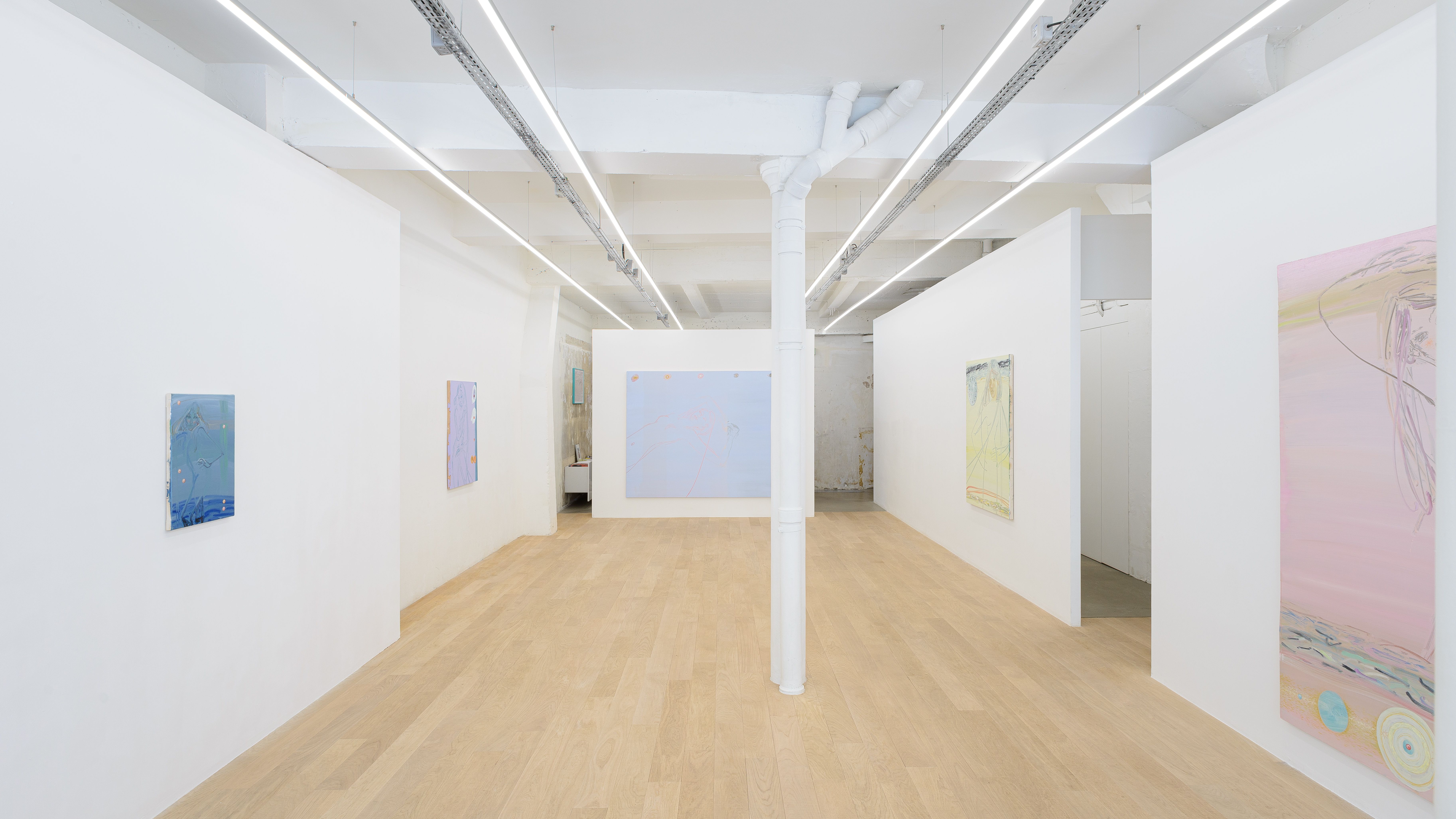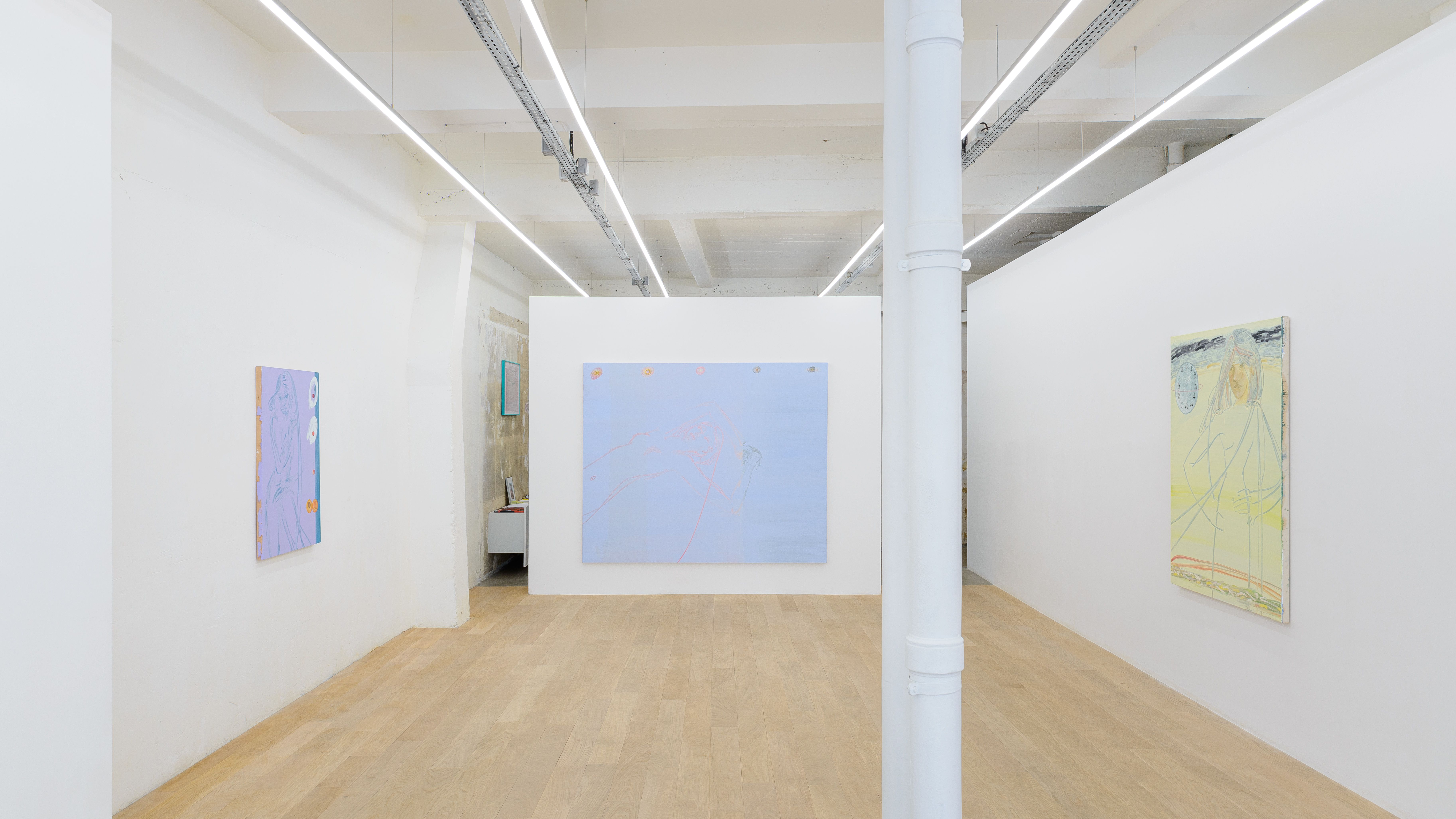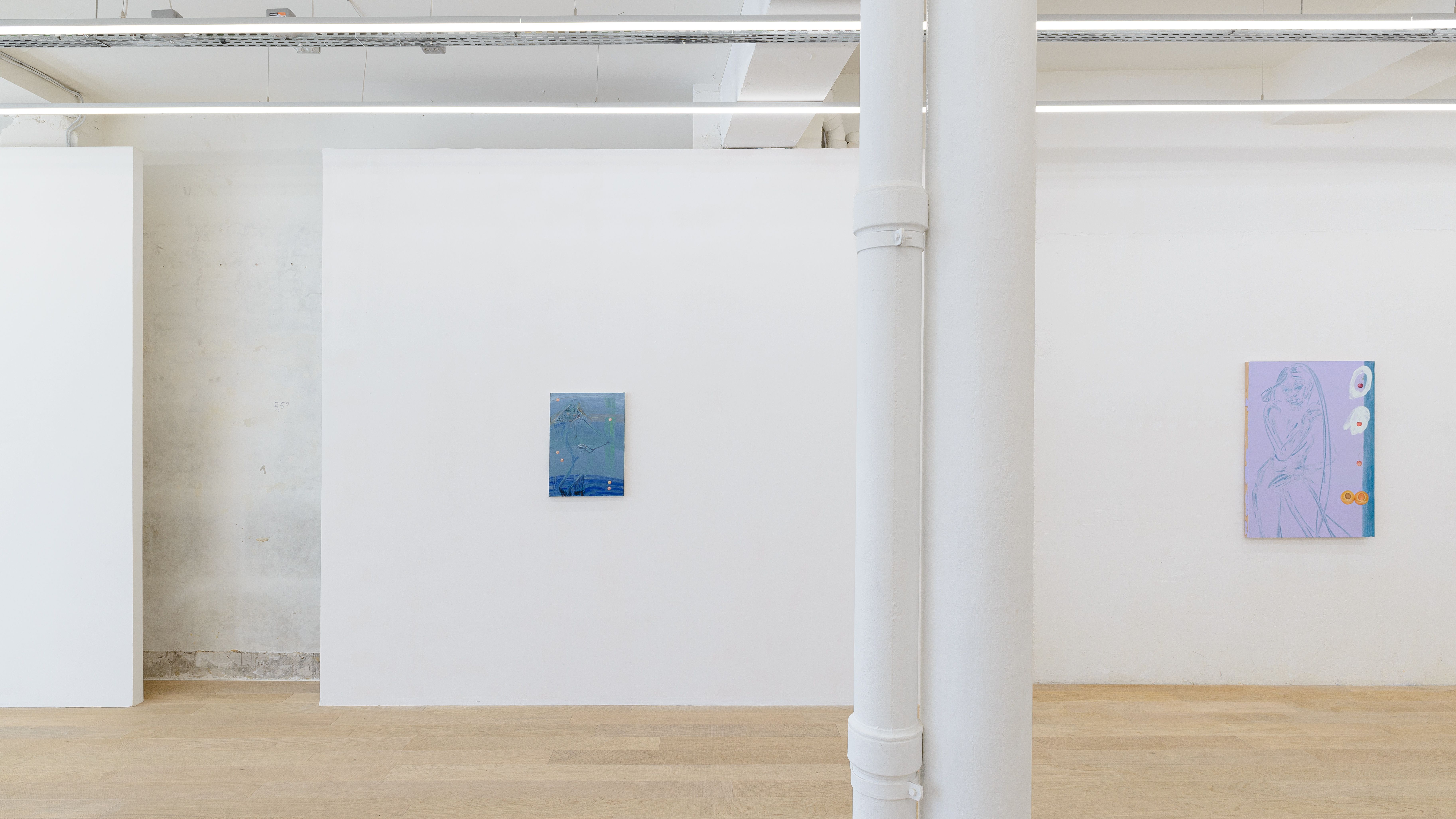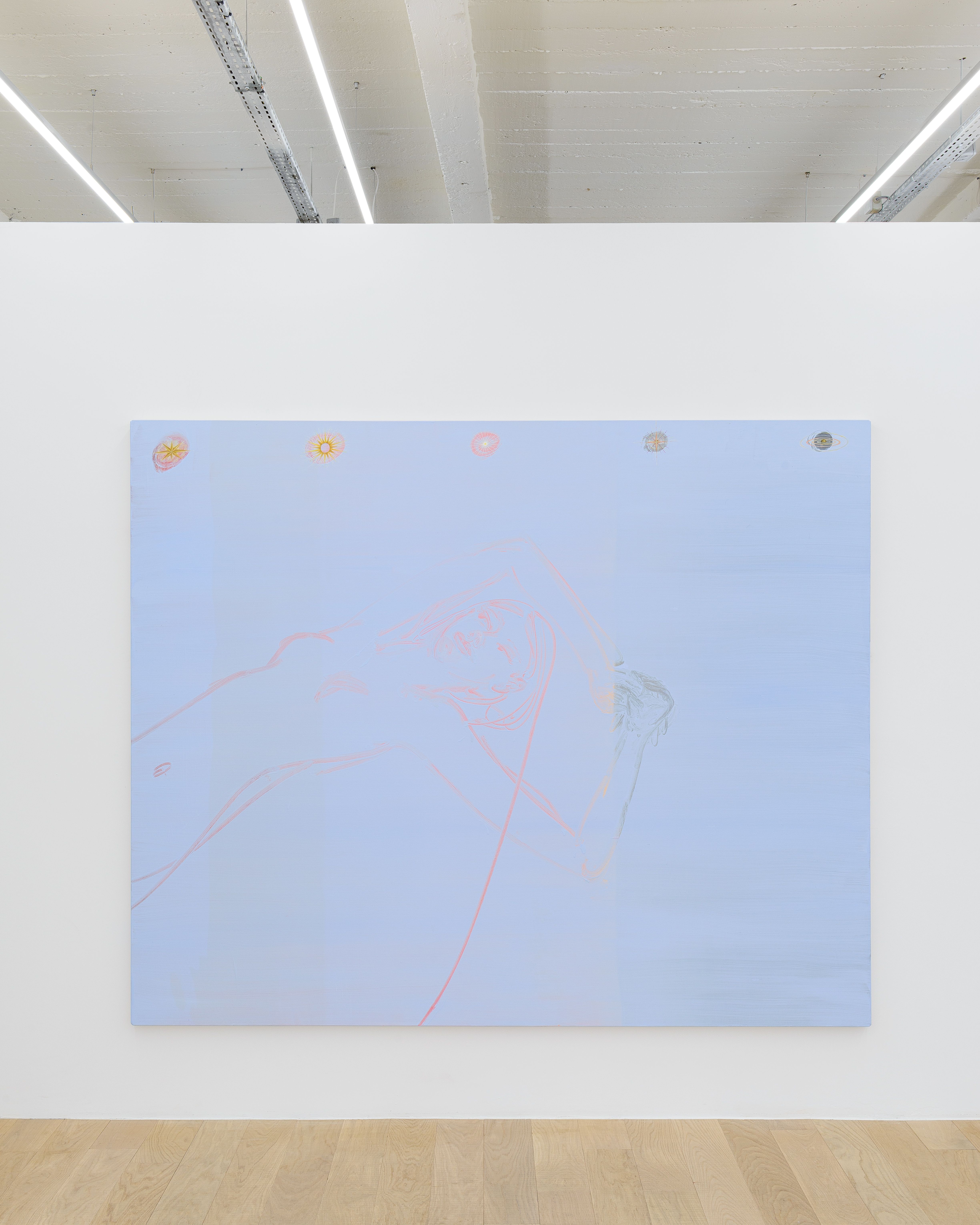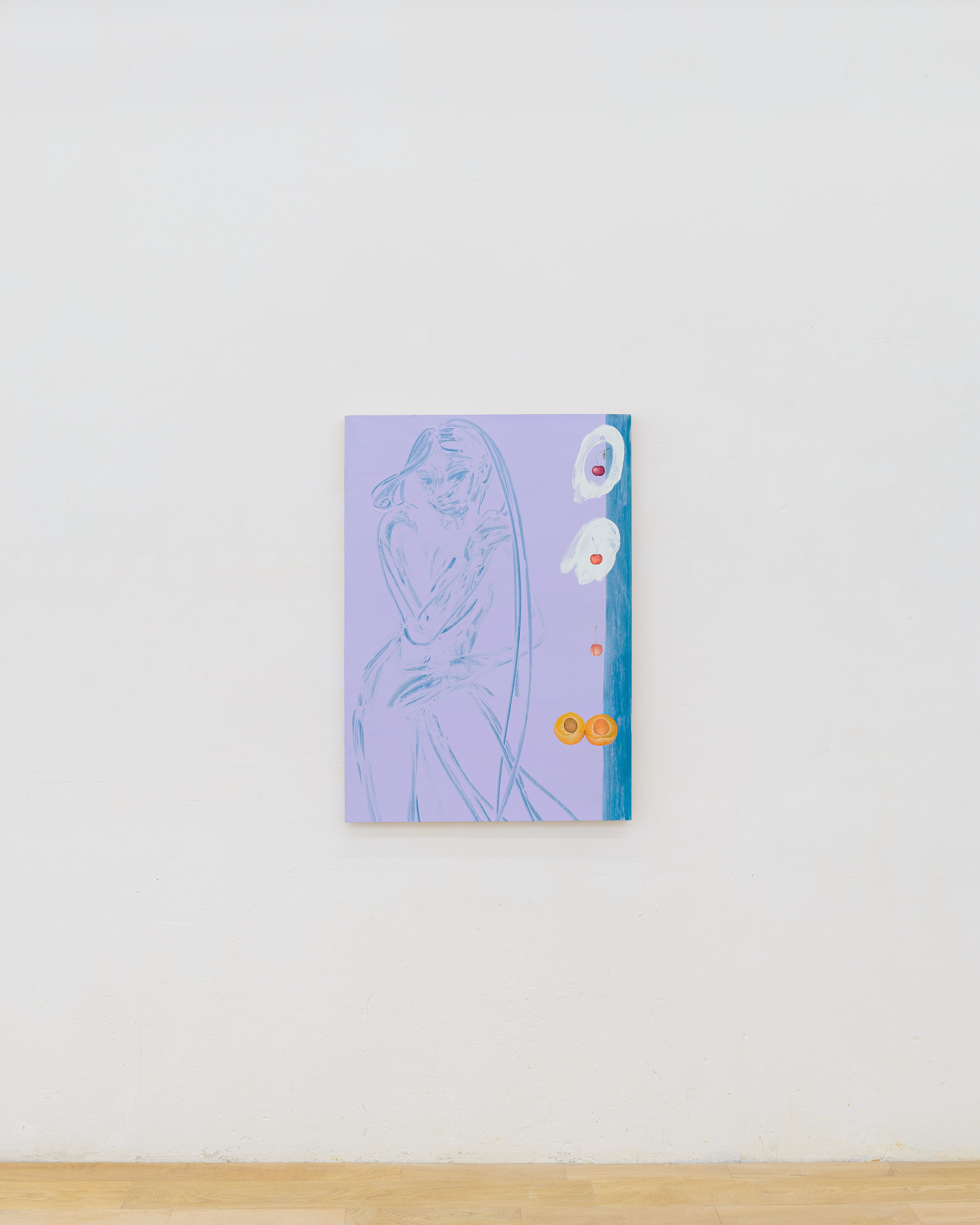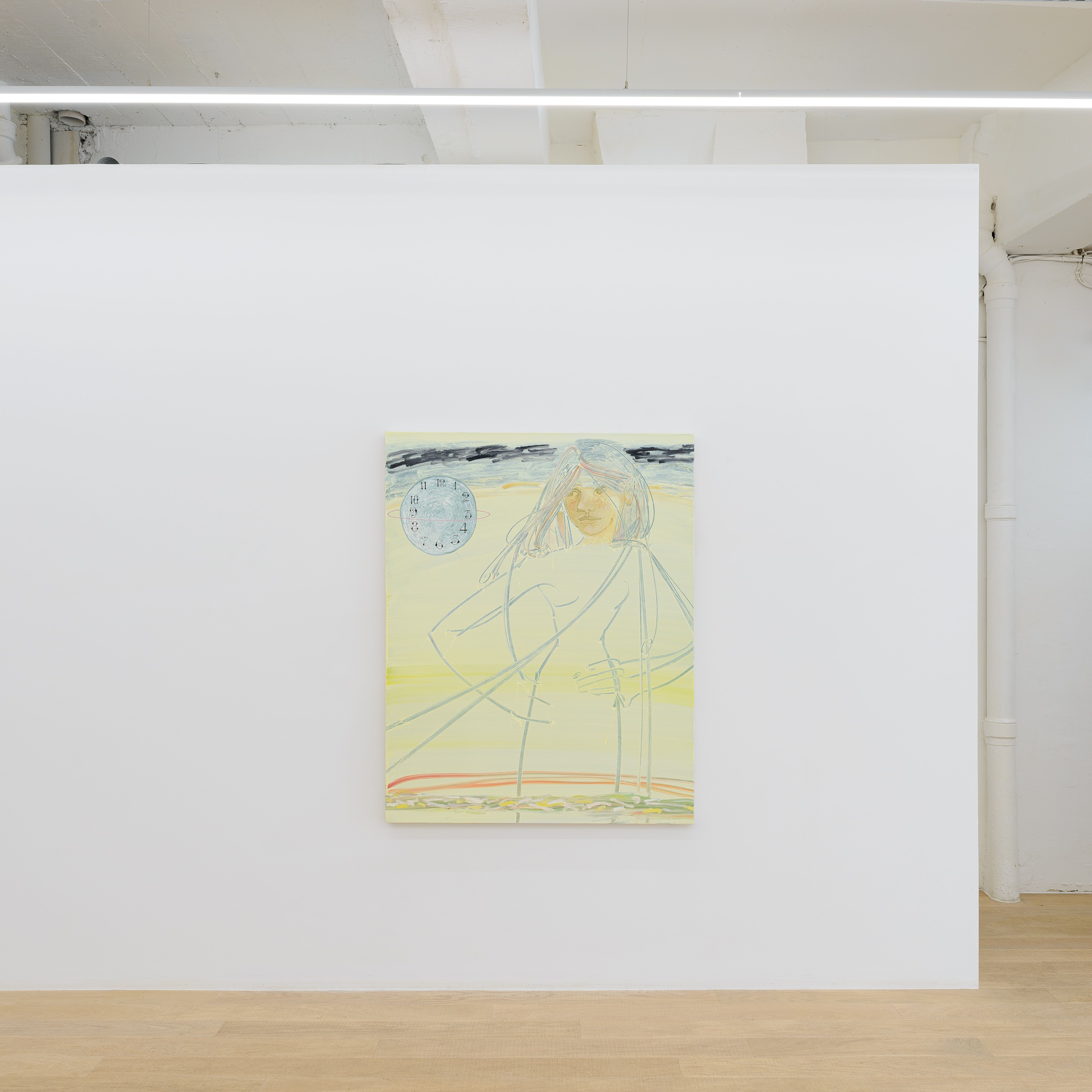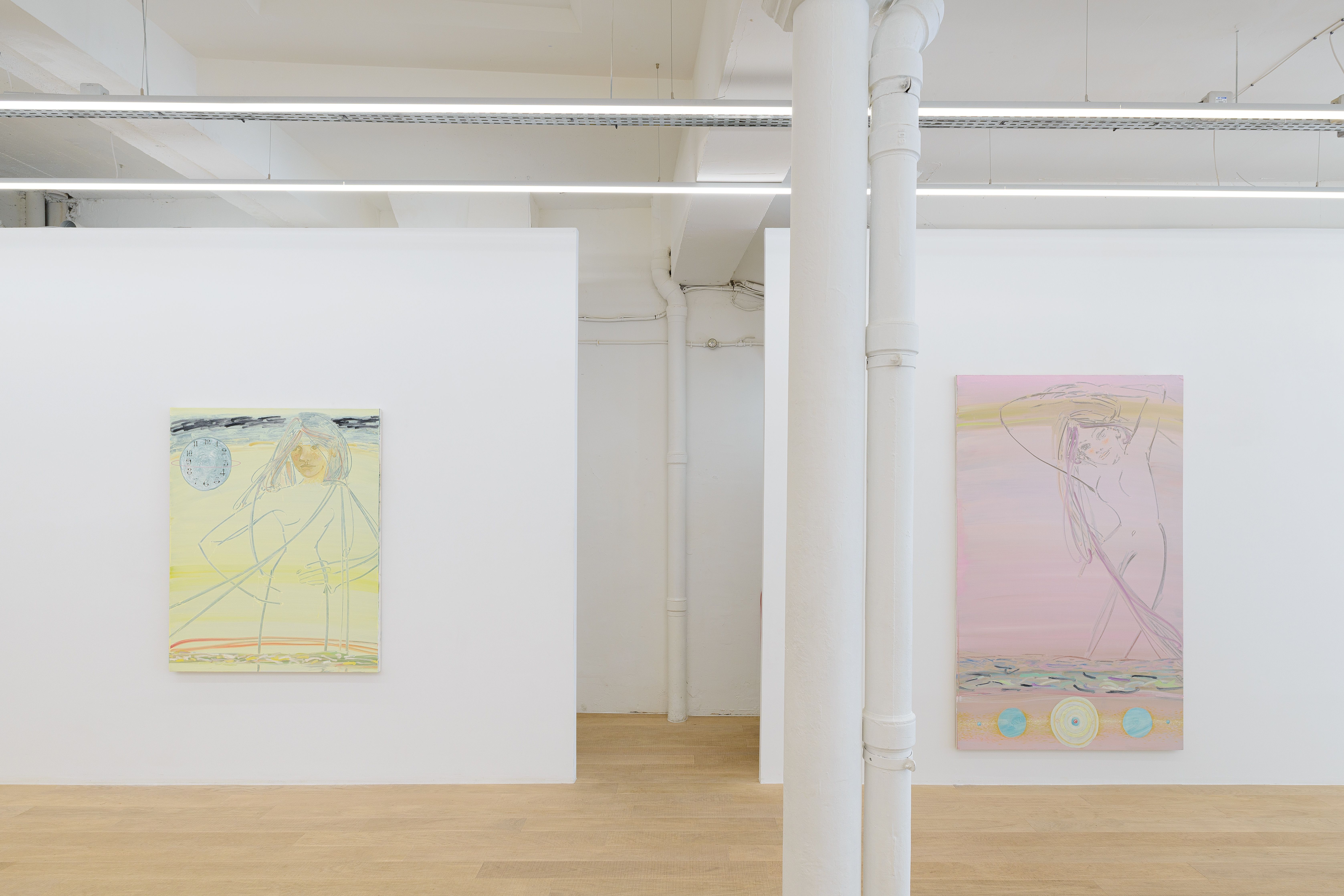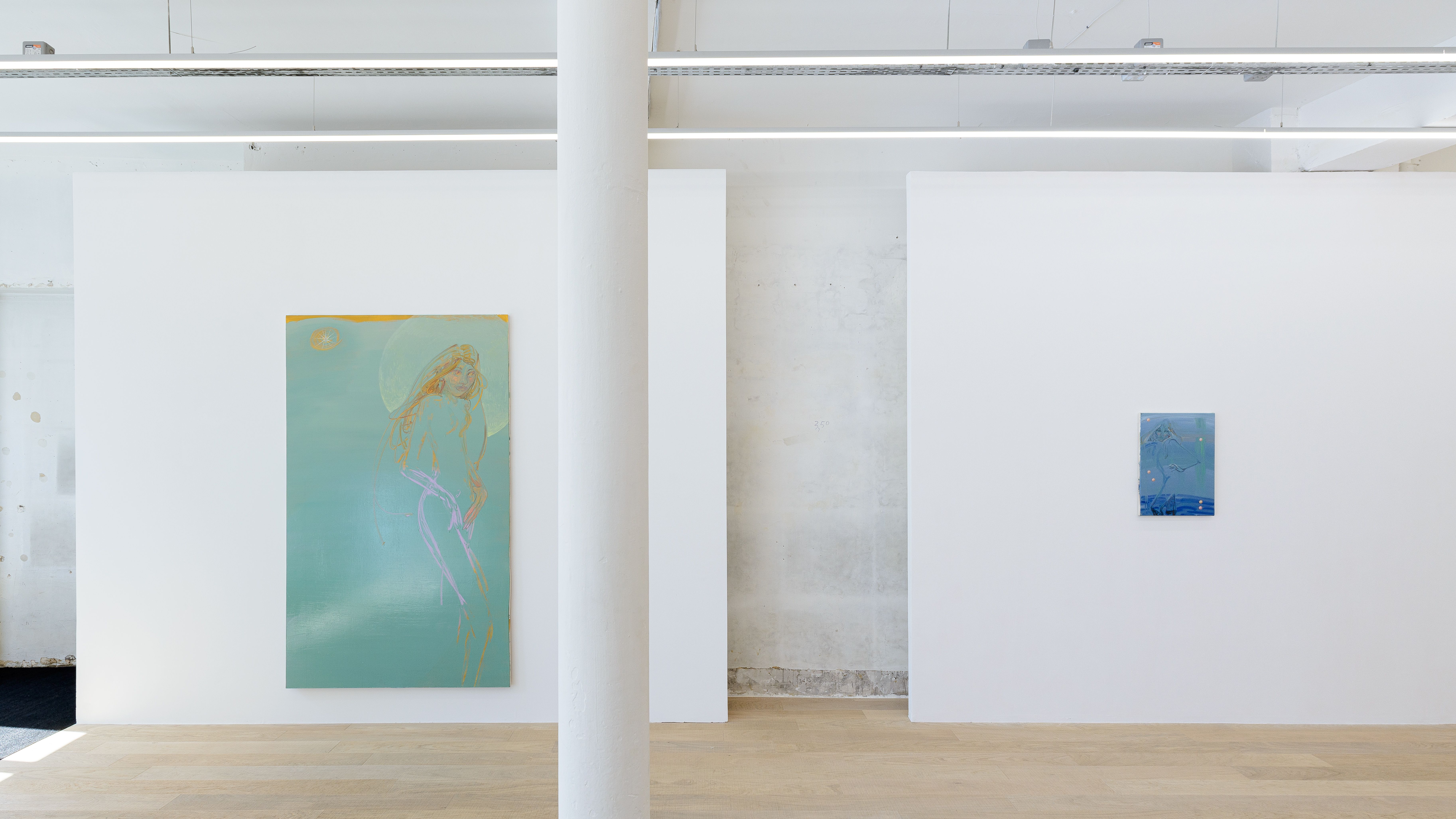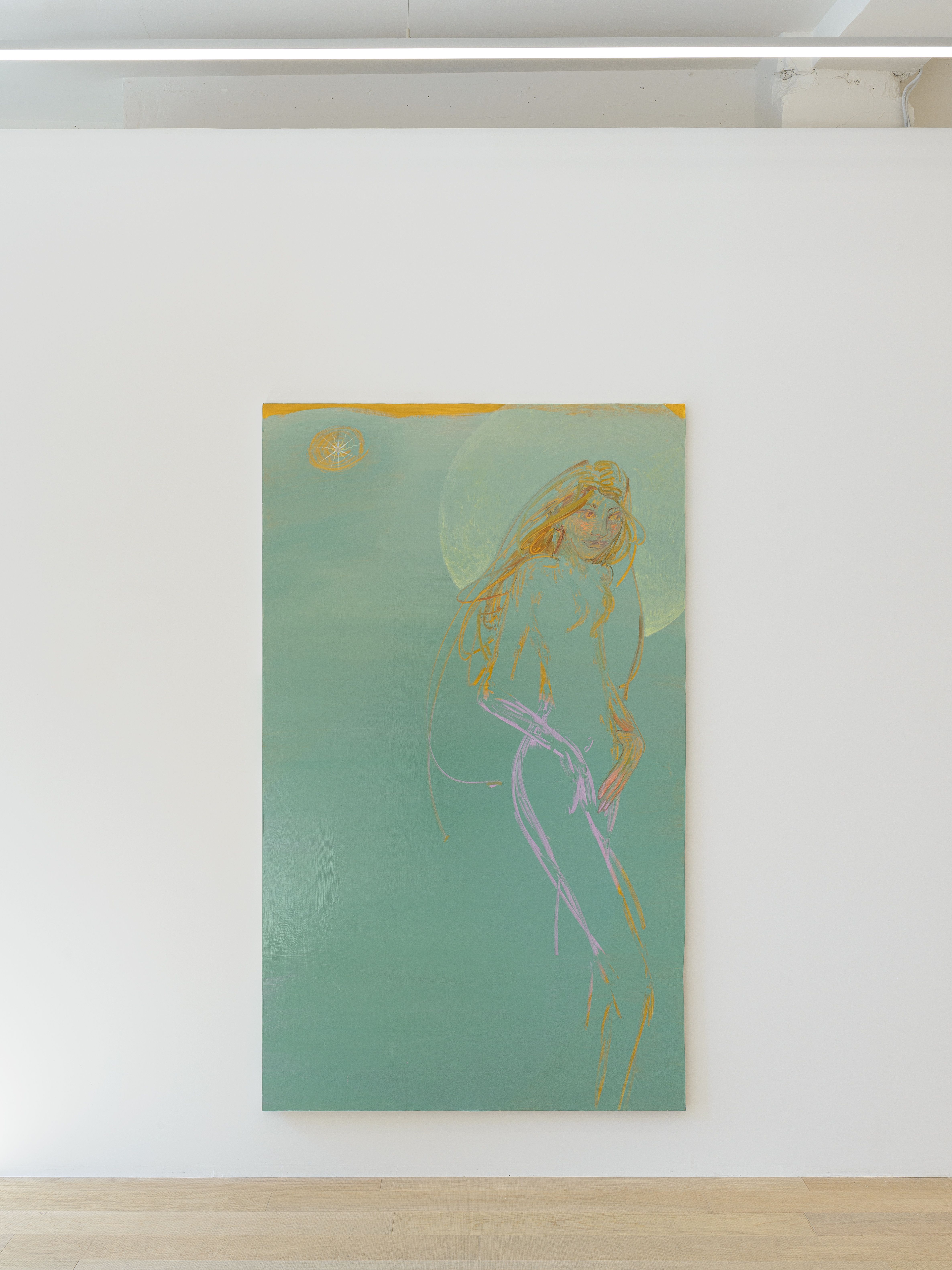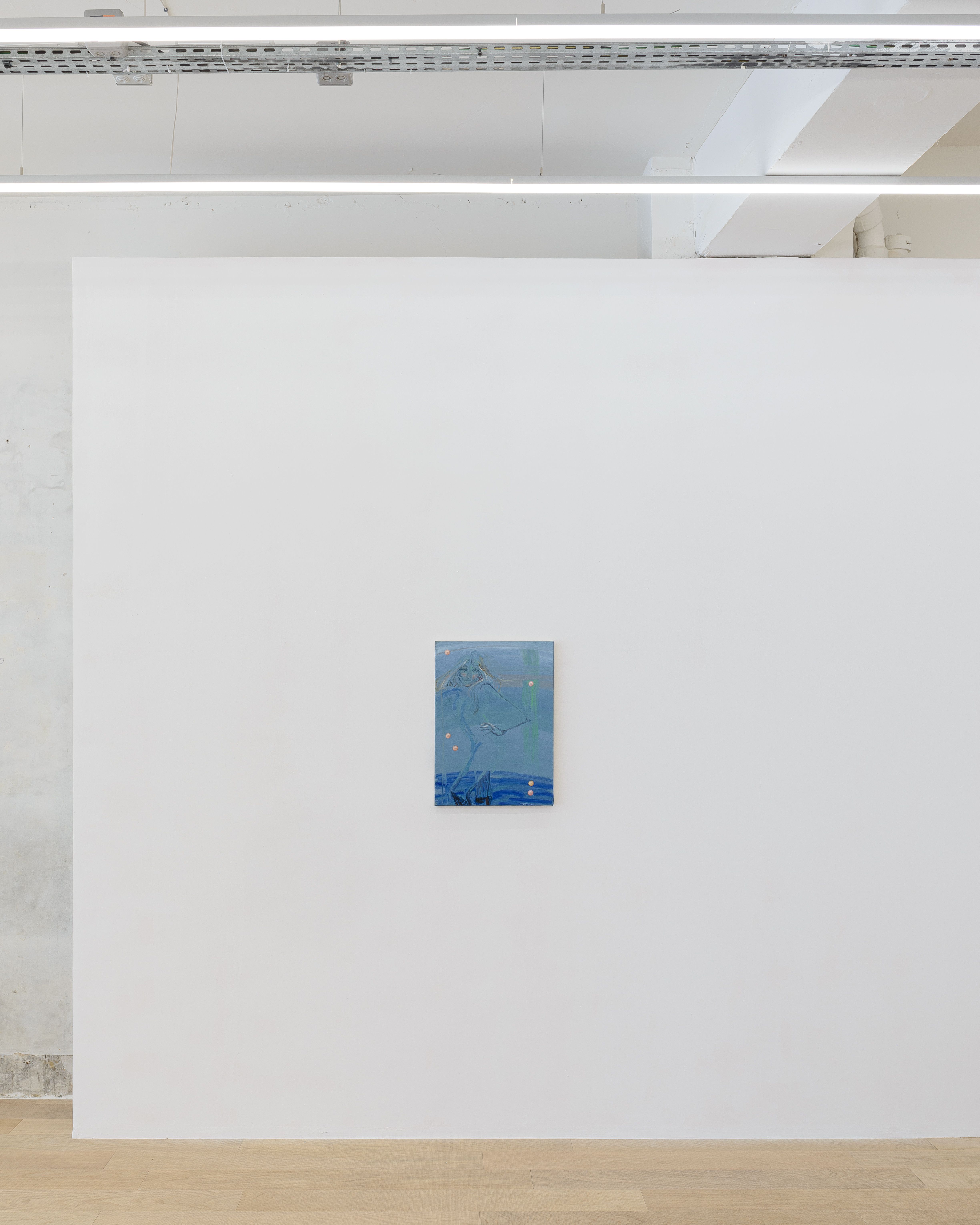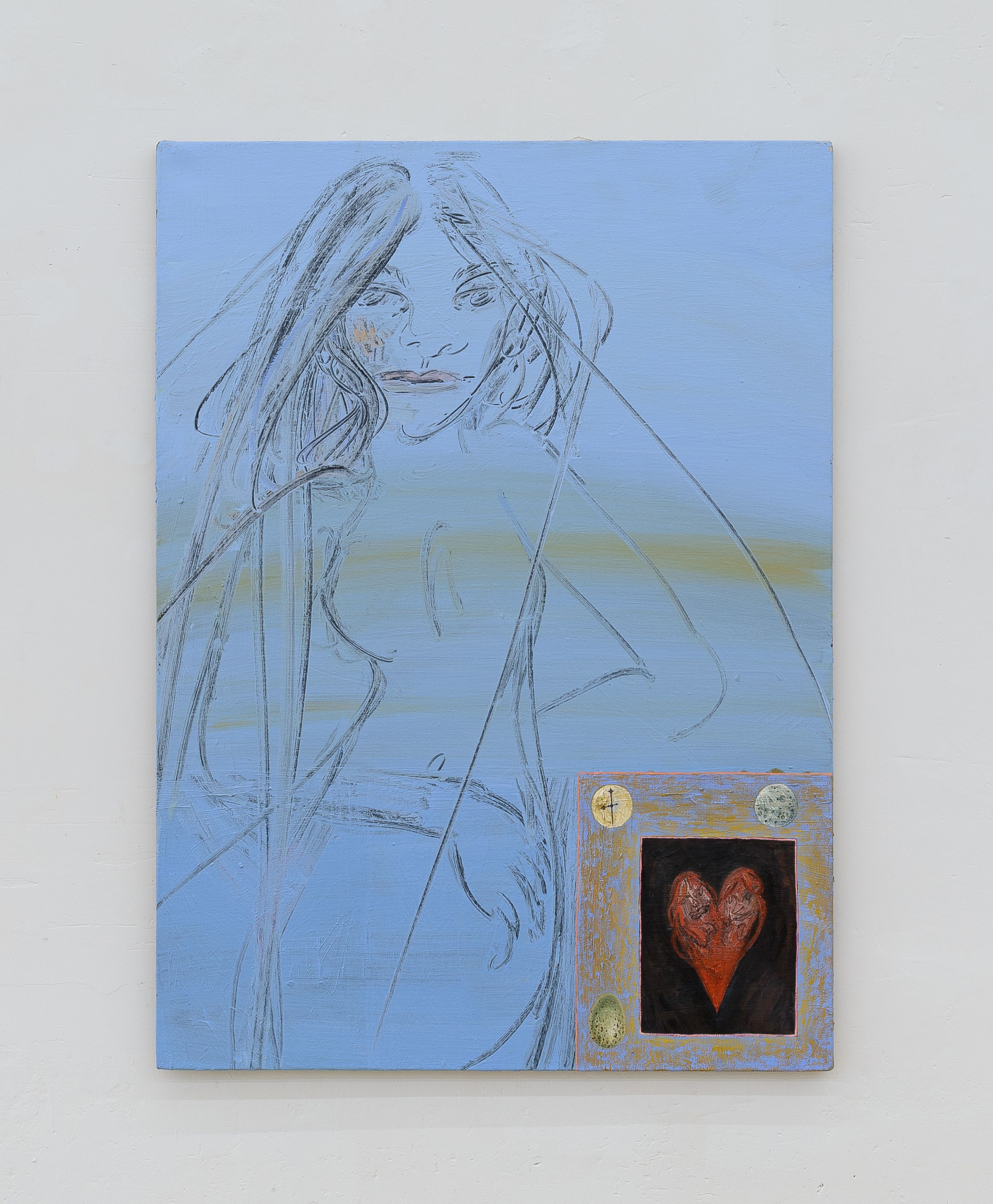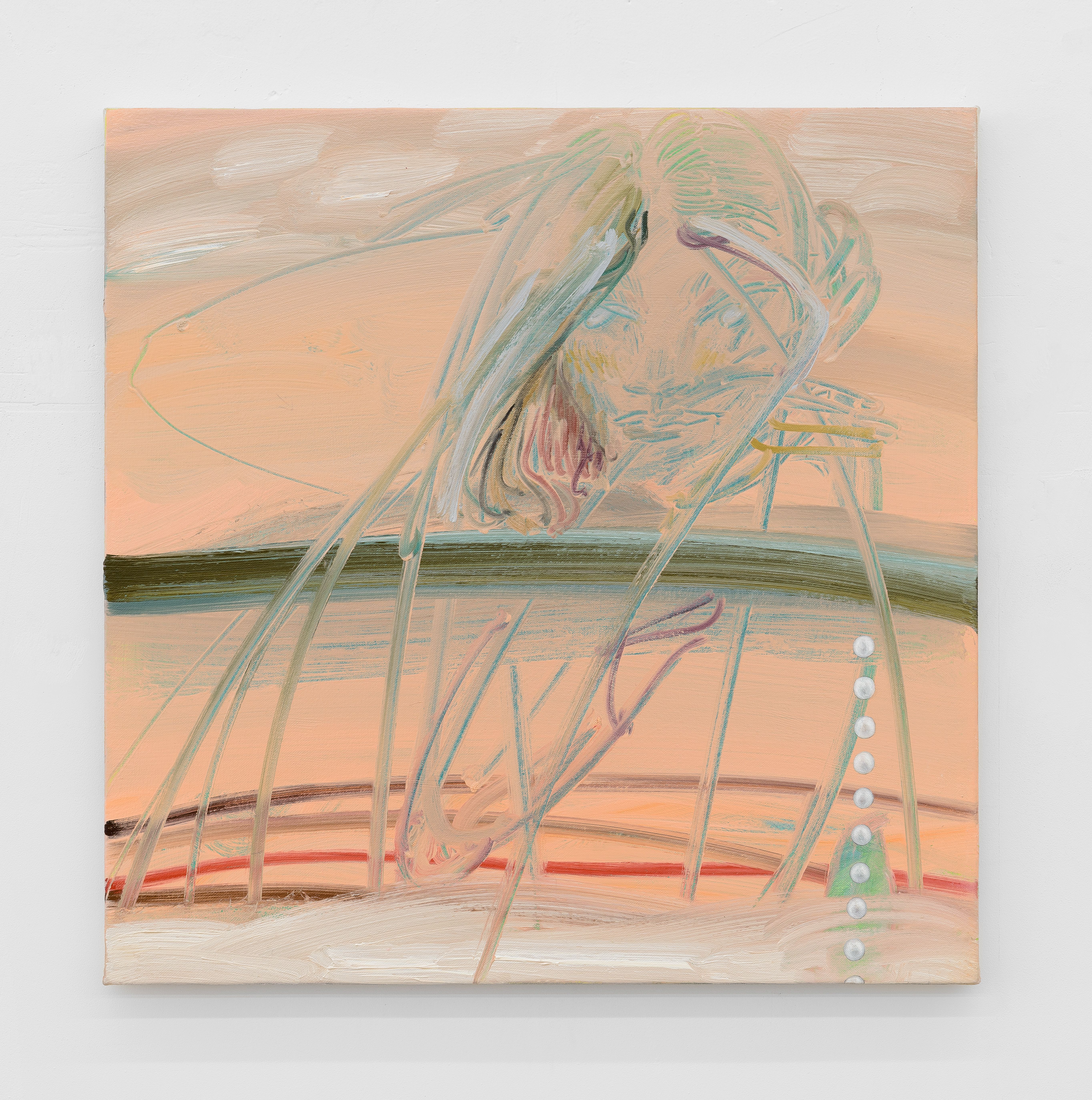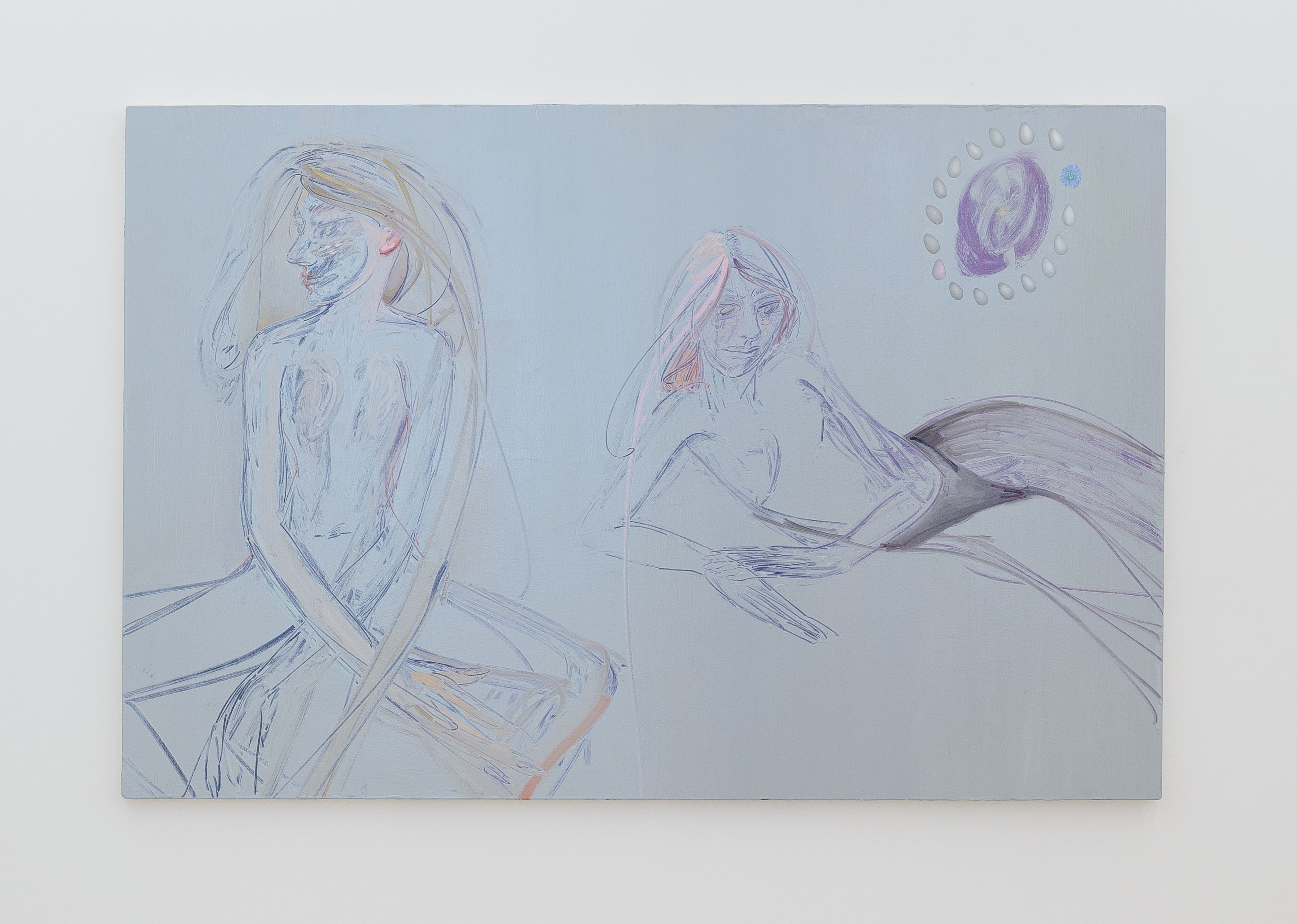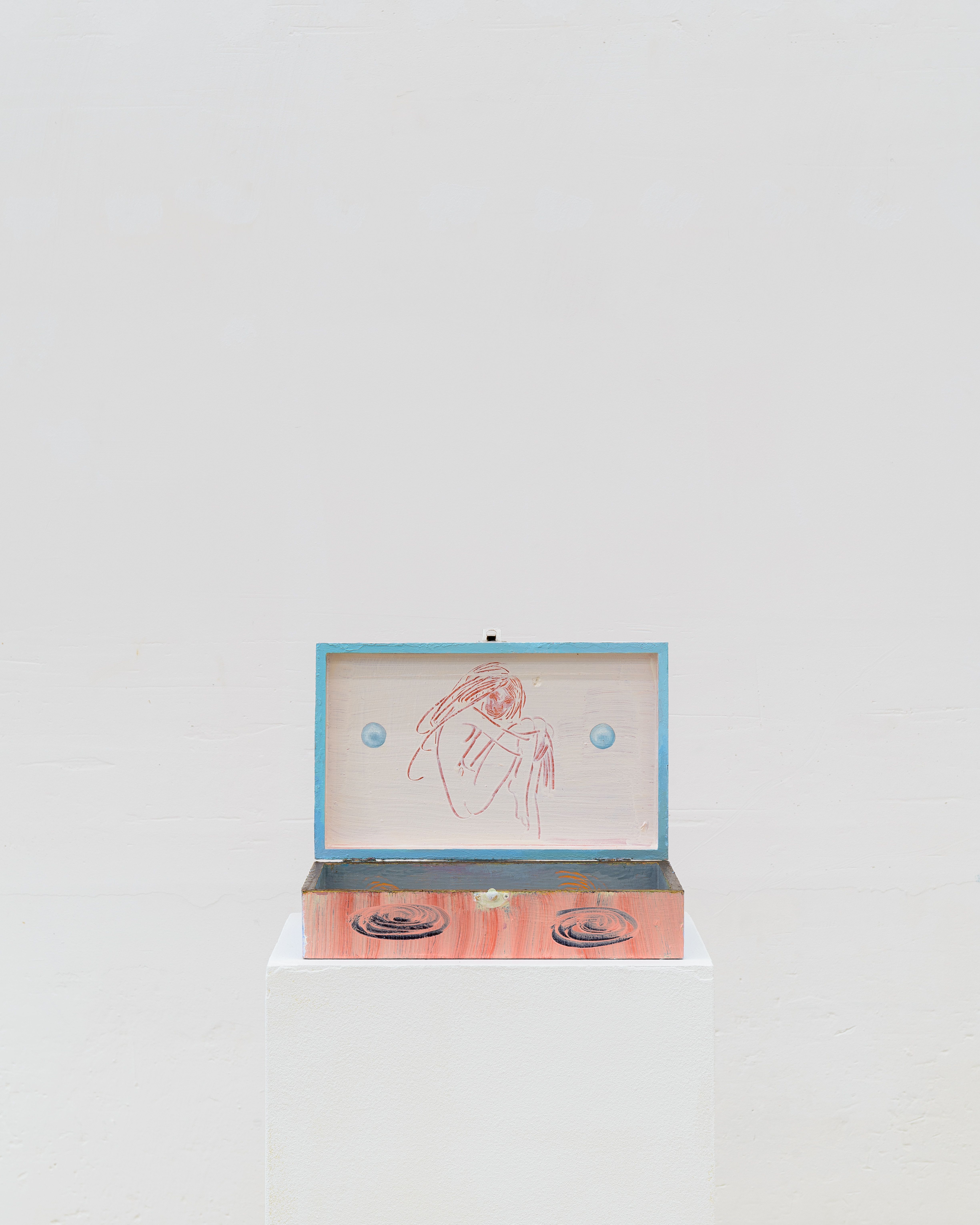Gal Schindler’s paintings present creatures from another world, where colours seem to play with us. Her obsession with painting bodies translates to a peculiar line, encapsulating a never-ending movement, interweaving curves and hair in an undulating, tempting manner. However, what her figures convey is way beyond seduction. Their enchanting way of looking at us raises mysterious voices from old times, evoking witches hunted in the middle ages when they were brought to justice and forced to say that they did not dare to disobey the devil.
Monstrous, yet, somewhat humorous. Rebellious but also soft and gentle. As if these figures were dancing, their bodies reflect the impromptu gestures of the artist herself, moving playfully in front of the canvas. This might be unexpected, when one discovers Schindler grew up surrounded by anatomy books and pictures of human bodies being modified, re-sculptured, rearranged and twisted, all belonging to her orthopaedic surgeon father. Can we say then, that Gal Schindler’s improper brush stroke joins this action of deconstructing and reconstructing the human body ? Undoubtedly, the feminine body; though many of Schindler’s sources of inspiration are male artists, such as Lucien Freud and Willem de Kooning, or photographs such as George Platt Lynes or Herbert List. We can understand nonetheless, that Schindler’s way to unlearn these male gazes on the body, is, as the poet Anne Carson would say [to] look in so quick you see the secret.
The figures floating in oceans of colours are alluding to Schindler’s interest in the realm of the sea, which she considers as an alternative world, somehow resembling outer space, where so much has not yet been reached. Her new show in Sultana gallery is a continuation of the artist's exploration of these deep spaces. After a series of paintings delving into the form of shells as silently resistant objects, Schindler presents here new paintings, revealing the shell’s soul, the pearl. As pearls are formed through the gradual accumulation of layers, so too are Schindler's delicate yet disturbing paintings, both divulging to us a noiseless inner truth.
Noam Alon
♡
Les peintures de Gal Schindler présentent des créatures d'un autre monde dont les couleurs semblent se jouer de nous. Son obsession de peindre des corps se traduit par une ligne étonnante qui entremêle, en un mouvement ondulatoire, courbes et cheveux de manière séduisante.
Toutefois, le pouvoir de ses figures dépassent les simples charmes. Leur regard enchanteur fait surgir des voix mystérieuses du passé, peut-être celles des sorcières du Moyen-Âge qui, soumises à la “justice", étaient forcées d'admettre : « je n’ai pas osé désobéir au diable ».
Si ces personnages ressemblent parfois à des monstres, l’ironie n’est jamais loin. Rebelles, mais aussi tendres et attachants. Comme s’ils dansaient, leurs corps reflètent les gestes impulsifs de l'artiste qui évolue, affranchie, devant la toile. Pourtant, Schindler a grandi entourée de livres d'anatomie et de photographies de corps humains morcelés, transformés et re-sculptés, appartenant tous à son père, chirurgien orthopédiste. Pourrait-on dire alors que le coup de pinceau spontané de Gal Schindler s'inscrit dans cette action de déconstruction et de reconstruction du corps humain ?
Sans aucun doute, du corps féminin. Si Lucien Freud et Willem de Kooning, ou encore les photographes George Platt Lynes ou Herbert List sont autant de références pour l’artiste, Schindler désapprend toutefois les regards masculins sur le corps en s’attachant « [to] look in so quick you see the secret »[1], comme l’écrivait la poétesse Anne Carson.
Les figures flottant dans des océans de couleurs font écho à l'intérêt de Schindler pour le royaume de la mer, qu'elle considère comme un monde des possibles, à l’image du cosmos, où tant de phénomènes restent encore à définir.
La nouvelle exposition de Schindler à la galerie Sultana, “ Dust Proof ", prolonge l’exploration des espaces profonds. Après une série de peintures observant la forme des coquillages en tant qu'objets silencieusement résistants, Schindler nous dévoile dans ses nouvelles pièces, la nacre.
Les perles formées par accumulation progressive de couches comme les peintures délicates et troublantes de Schindler, à travers leur épaisseur multiple, nous font apercevoir une vérité intérieure qui demeure insaisissable.
Noam Alon
[1]Anne Carson, Town on the Way through God's Woods

